Featured Posts
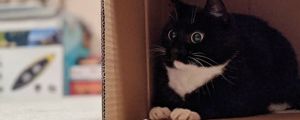
I wish I had a fort

The powerof positive thinking

NASA
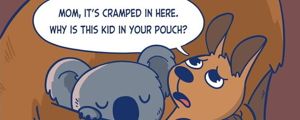
Pray for Australia

Take care of each other
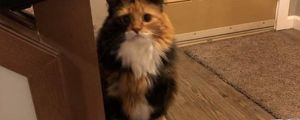
She has emerged

My soul feels so much better

I just ordered one. #Just2019HispanicThings
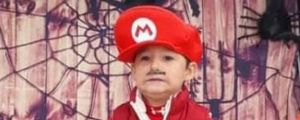
He really wanted his photo at the Halloween party, but was super scared of the spiders
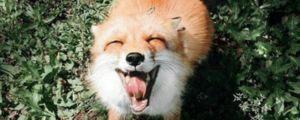
The Only Thing More Contagious Than COVID19 Might Be This Fox's Smile
About
FAQ
Contact
Rules
Terms
Privacy
Feedback
Keyboard Shortcuts:
Previous Post · Next Post · + CTRL Skip Post
Previous Post · Next Post · + CTRL Skip Post
© 2025 FunSubstance · funny and entertaining pictures, memes, gifs & videos.
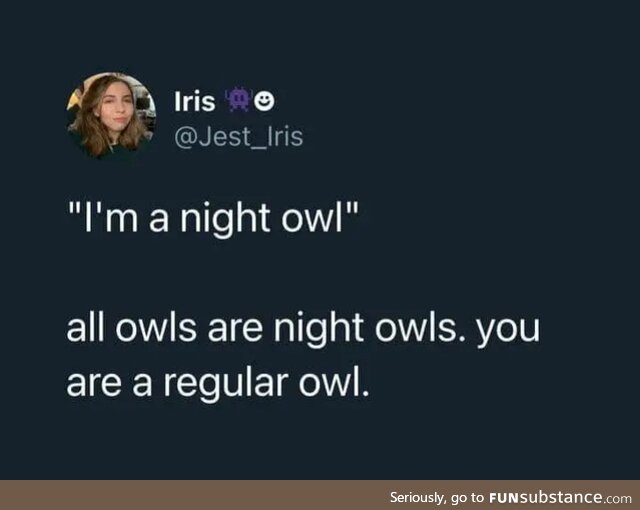


Several owls are Diurnal, not Nocturnal. Pygmy owls for example tend to be active and hunt in the daytime.
Many owls are more fluid in their schedules and vary their sleep and active periods based on time of year or prey.
Snowy owls can often be seen hunting in the daytime for example.
Then you have Owls who are mostly or exclusively nocturnal asides the rare individual or passing incident. Great horned owls are an example of an owl that is for the most part entirely nocturnal and only active in the day under some extreme or ínsula circumstances.
So within a group of owls, like our Snowy Owls, one individual may be a “night owl” and another a day owl. Within owls as a whole as a broad grouping, some may be Day or night or both or somewhat neither.
So “night owl” might seem a bit redundant, it is valid to specify.